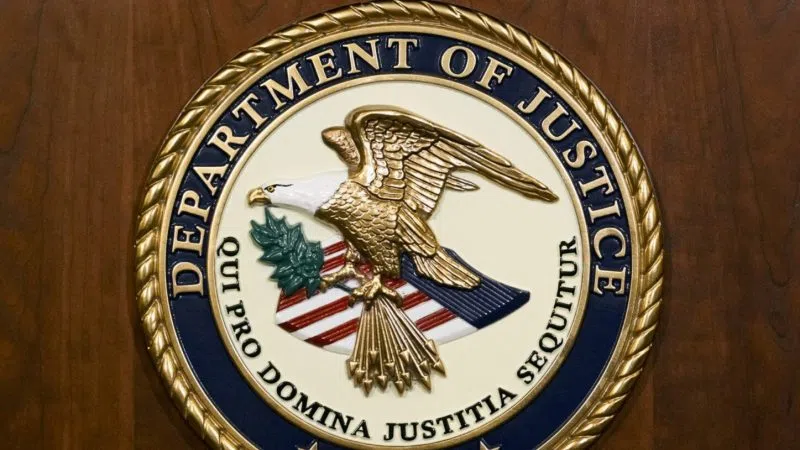
Matt Delaney | July 2, 2025
(The Washington Times) — Naturalized U.S. citizens who committed crimes, defrauded the government or lied on their way to becoming an American are top targets to have their citizenship revoked by the Justice Department.
Assistant Attorney General Brett Shumate shared the Justice Department’s new priorities in a staff memo on June 11, stating that naturalized Americans with ties to gangs or terrorist groups or those with violent criminal records will be pursued as doggedly as people who fibbed during citizenship applications or interviews.
“At a fundamental level, it also supports the overall integrity of the naturalization program by ensuring that those who unlawfully procured citizenship, including those who obtained it through fraud or concealment of material information, do not maintain the benefits of the unlawful procurement,” said Mr. Shumate’s memo to the civil division.
For example, Justice Department officials celebrated a British man’s denaturalization last month after he hid the fact that he was a child sex offender when living abroad.
Officials said Elliott Duke received and distributed child pornography in 2012 while he was enlisted in the U.S. Army and stationed in Germany.
Duke, 39, did not disclose the criminal activity on his naturalization application, nor did he divulge the sex crimes during an interview with a U.S. Citizenship and Immigration Services employee, the department said.
He became a citizen in 2013 and simultaneously revoked his citizenship with the United Kingdom.
Prosecutors charged Duke with child pornography offenses in Louisiana that same year, and he was convicted in 2014.
Federal prosecutors said they filed for Duke’s denaturalization in February. A federal judge formally revoked his citizenship on June 13. His federal prison sentence won’t be complete until 2030.
“The laws intended to facilitate citizenship for brave men and women who join our nation’s armed forces will not shield individuals who have fraudulently obtained U.S. citizenship by concealing their crimes,” Mr. Shumate said at the time. “If you commit serious crimes before you become a U.S. citizen and then lie about them during your naturalization process, the Justice Department will discover the truth and come after you.”
A bulk of the denaturalization candidates identified by federal officials appear obvious.
The memo said the Justice Department seeks to revoke American citizenship of people who took part in “war crimes,” “extrajudicial killings” and “human rights abuses,” as well as “naturalized criminals,” gang members or convicts who “pose an ongoing threat to the United States,” such as Americans allied with terrorist organizations.
The Justice Department’s new mandate also covers people convicted of nonviolent crimes.
The memo said naturalized citizens who defraud the government, such as those who received ill-gotten funds from the pandemic emergency Paycheck Protection Program or Medicare or Medicaid, are fair game for Justice Department attorneys.
Further, naturalized Americans who defrauded companies or other people in private transactions are eligible for denaturalization.
Some people don’t even need to be convicted of a crime. The memo said U.S. attorneys can refer those with pending criminal cases to the civil division if they deem their alleged crimes worthy.
President Trump said Tuesday he would even “take a look” at deporting Elon Musk after the South Africa-born tech magnate’s noisy criticisms of the president’s agenda.
Mr. Musk has been an American citizen for two decades. The only way he could lose that status is if he fudged documents or details about his life while attempting to become a citizen.
The 14th Amendment protects natural-born Americans from having the government terminate their citizenship.
The denaturalization process is a civil action, so the burden of proof is lower than that of criminal litigation. The government also doesn’t need to provide legal counsel for those singled out by the administration.
Denaturalizations increased during Mr. Trump’s first term. The Justice Department filed 30 cases in 2017, double the number from 2016, according to the Miami Herald.
From 1990 to 2017, the Justice Department pursued 305 total denaturalization cases, or about 11 annually.
The Trump administration has also used Operation Janus, an initiative launched by President Obama in 2009. The federal project tasks U.S. Citizenship and Immigration Services with reviewing incomplete fingerprint data submitted by citizenship applicants.
In 2018, the Justice Department said it secured its first denaturalization as part of Operation Janus when Indian national Bajinder Singh lost his citizenship.
Mr. Singh came to the U.S. in the early 1990s but was deported for not providing any identification or travel documents. He returned to the U.S. months later, claimed asylum under a different name and then abandoned the application once he married an American.
A federal judge downgraded Mr. Singh’s status from naturalized citizen to lawful permanent resident, making him vulnerable to deportation. It is unclear whether he was removed from the country.
The first Trump administration launched an effort in 2018, with Homeland Security taking the lead, to identify people who gained citizenship under false identities.
The U.S. has used denaturalization against officials or militia leaders from other countries who presided over atrocities and then concealed them to win U.S. citizenship.
Cases have been brought against a Nazi labor camp guard, an Iraqi military commander who concealed his role in assisting Saddam Hussein, a man who participated in massacres in Srebrenica as the former Yugoslavia was breaking up, and a Chilean military commander accused of kidnapping and murder during that country’s 1973 coup.
Stephen Dinan contributed to this report.























